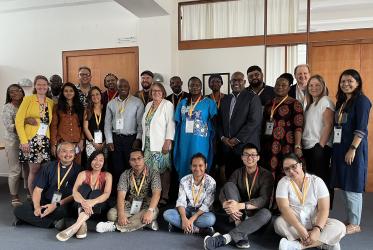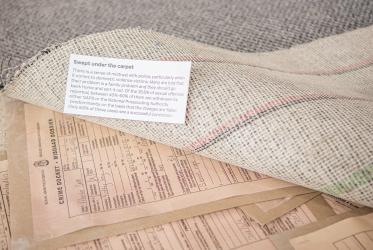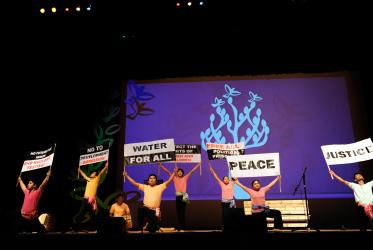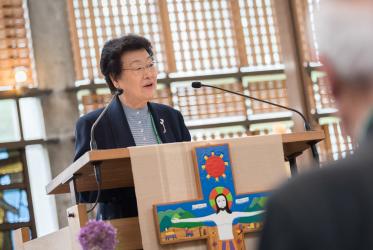Displaying 1 - 13 of 13
06 July 2022
Churches can address root causes of femicide—and webinar reveals how
01 December 2021
How racism and colonialism are exacerbating impacts of climate change
29 September 2021
Webinar - “People on the Move: Solidarity and Advocacy”
12 November 2020
https://www.oikoumene.org/live
Webinar will highlight “People on the Move: Solidarity and Advocacy”
05 November 2020
Ecumenical School on Governance, Economics and Management (GEM) for an Economy of Life
19 - 30 August 2019
Jakarta, Indonesia
GEM School: integrating theology and economics
05 September 2017
A just financial and economic architecture is possible, students find
08 September 2016
2018 Ecumenical School on Governance, Economics and Management (GEM) for an Economy of Life
19 - 31 August 2018
Mexico City, Mexico





